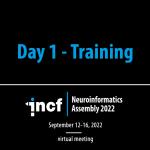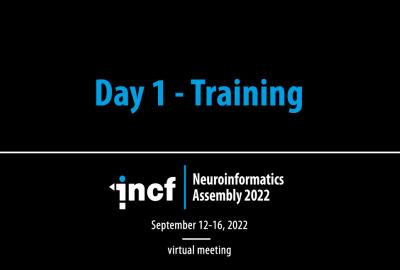A series of short explanations of the basic equations underlying computational neuroscience.
Basic Mathematics for Computational Neuroscience
Course Features
Lectures
Videos
Lessons of this Course
1
1
Duration:
08:16
Speaker:
This lesson introduces the membrane potential equation
2
2
Duration:
9:22
Speaker:
Explanation of the equivalent circuit model for a patch of passive neural membrane.
3
3
Duration:
4:04
Speaker:
Solving the passive membrane equation
4
4
Duration:
5:54
Speaker:
Injecting current into a passive membrane
6
6
Duration:
9:55
Speaker:
Explains the logic behind dealing with more complex currents by solving the membrane equation numerically.
7
7
Duration:
8:32
Speaker:
Introducing voltage-dependent ion channels into the passive membrane
8
8
Duration:
10:32
Speaker:
Introducing Hodgkin & Huxley's voltage dependent ion channel models, with emphasis on the sodium conductance
9
9
Duration:
9:56
Speaker:
Introducing the classical Hodgkin & Huxley squid axon model with sodium and potassium conductances
10
10
Duration:
9:23
Speaker:
This lesson extends the conductance-based model equation to multiple neuronal compartments, taking more complex morphology into account.









